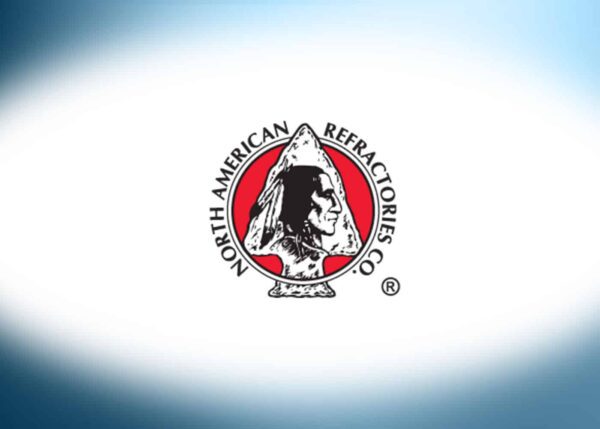01. History of Asbestos Use
NARCO/Honeywell History of Asbestos Use
North American Refractories Company was founded in 1929 as a manufacturer of products specifically produced to withstand high temperatures, like glass melting and metalworking. Around the time that the company was first arriving on the scene, asbestos was beginning to reach its peak usage in America. Since the mineral was known to naturally resist fire, heat, chemical reactions and electrical damage, it was a cost-effective additive to many NARCO products, including cement and bricks.
NARCO continued to grow to become one of the top manufacturers of refractory products at the time, employing around 749 workers over the years. Their products could be found at a variety of worksites, including in boiler rooms aboard ships, factories and oil refineries.
In 1979, Honeywell, a manufacturer of a variety of asbestos products, acquired NARCO. This merger, which lasted until 1986, led to a steady growth of their asbestos product lines, as well as helped launch NARCO products into more steel mills and industrial plants.
Yet another asbestos company, ANH Refractories, acquired NARCO from Honeywell in 1986. By this time, the company no longer used asbestos in its products, but its past heavy use of the mineral in numerous products, like their cement and gun mix, led to thousands of lawsuits for wrongful exposure.
Resources for Mesothelioma Patients
02. Asbestos Products
NARCO/Honeywell Asbestos Products
Since 1929, NARCO has engineered, manufactured and supplied a variety of heavy-duty refractory products for use in high-temperature, industrial fireproofing and insulating applications. Some types of refractory products manufactured by NARCO include cements, castables and patches.
When Honeywell acquired NARCO in 1979, the company’s reach continued to expand, especially into the steel industry. The merged companies continued to create a variety of asbestos products. Reports show the company stopped utilizing asbestos in their production sometime in the 1980s.
| Product Name | Start Year | End Year |
|---|---|---|
| NARCO Aerogun | 1971 | 1979 |
| NARCO Anti-Erode | 1963 | 1977 |
| NARCO BOF-Cote | 1966 | 1975 |
| NARCO BOF-Patch | 1965 | 1975 |
| NARCO CM Gun Mix | 1963 | 1973 |
| NARCO CM-18 Gun Mix | 1963 | 1977 |
| NARCO MC Gun Mix | 1963 | 1975 |
| NARCO Narcmag OH Gun Mix | 1974 | 1976 |
| NARCO Super 505 Hot Gun C | 1964 | 1977 |
| NARCO WO-339 McGun | 1964 | 1975 |
| Narcocast Es Fine Trowel | 1963 | 1977 |
| Narcocrete Trowel | 1963 | 1977 |
| Narcogan CM-343 | 1964 | 1977 |
| Narcogan MCD-344 | 1964 | 1975 |
| Narcolite | 1961 | 1977 |
| Narmag 60 DBRC | 1970 | 1980 |
| Star-On Cement | ||
| Super 505 Hot Gun C | 1964 | 1977 |
| Uni-Cote Cement | ||
| WO-339 McGun | 1964 | 1975 |
03. Occupational Exposure
NARCO/Honeywell and Occupational Exposure
Refractory products, including those manufactured and distributed by NARCO, were utilized in a number of industries and workplaces. While NARCO itself boasted over 700 employees before its various mergers, the impact of the company’s asbestos use went far beyond their own employee base. Workers in different plants, construction sites and other jobsites across the country were at risk of exposure to these products.
04. Asbestos Litigation
Asbestos Litigation Against NARCO/Honeywell
After decades of asbestos use, NARCO’s past began to catch up with them as old employees started to face serious illnesses from exposure, including asbestosis and mesothelioma.
One notable lawsuit was filed in 1999 by Frederick Moss, Martin Easter and their spouses against NARCO and several other asbestos manufacturers. Moss and Easter were retired engineers from Alabama and worked at various plants from the 1950s to the 1980s that contained NARCO asbestos products. As a result of their exposure on these jobsites, both men later developed mesothelioma, with Easter also suffering from asbestosis.
By the time NARCO filed for bankruptcy in 2002, the company faced nearly 300,000 lawsuits.
The jury awarded $7 million to the couples, with damages including lost income, past and future pain and suffering as a result of their diagnoses and to help cover medical expenses. NARCO appealed the verdict, stating that the damages were excessive and claimed that their products were not a substantial factor in their diagnoses. However, the court upheld the verdict and overruled all the appeals.
As a result of this case and thousands more pending lawsuits, NARCO filed for Chapter 11 bankruptcy in 2002, leading to a reorganization and the development of an asbestos trust fund to handle current and future claims.
05. Asbestos Trust Fund
NARCO Asbestos Trust Fund
The current payment percentage for approved claims is 100%.
The North American Refractories Company Asbestos Personal Injury Settlement Trust was first introduced in 2005, but didn’t become active and able to accept asbestos claims until April 2013. The trust was initially funded with $420 million as a result of cash funds from Honeywell and 79% interest of equity from NARCO’s new owner, HarbisonWalker International. The trust began paying claims in 2014.
The current payment percentage for successful claims is 100%. Actual amounts paid out to asbestos victims will vary and can range from the base-level payouts, based on a number of factors. The claimant’s age, history of exposure, type of asbestos disease, as well as their law firm’s history of settlements, are just some factors that can help determine compensation value.
According to the most recent documents from the trust’s operators, the trust paid out over $9 million in settling 872 claims. As of 2018, the trust has paid out over $151 million to asbestos victims since its inception. The trust continues to accept and pay out claims today. If you believe you or a loved one is entitled to compensation, learn how a mesothelioma lawyer can help.









